Get ready to level up in your research career.
K to R Essentials will help you confidently prepare for your first NIH R01.
Join a small, private cohort of women K Award recipients ready to move from mentee to principal investigator—without overwhelming yourself or your schedule.
Trusted by:
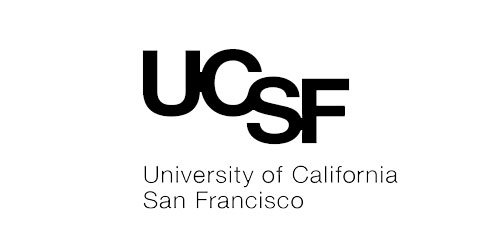
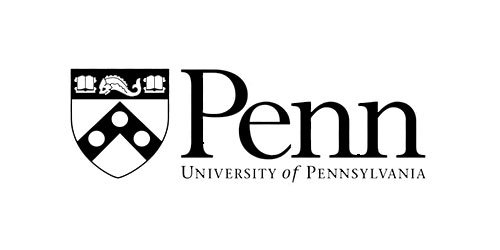
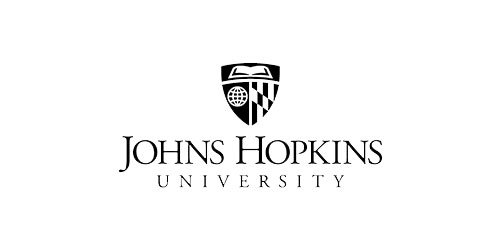

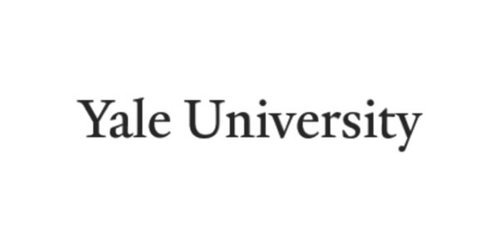

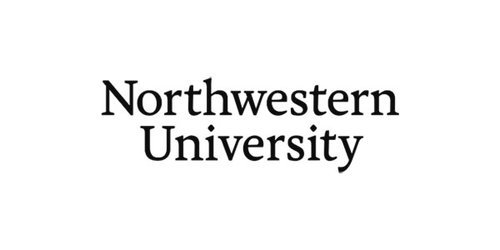
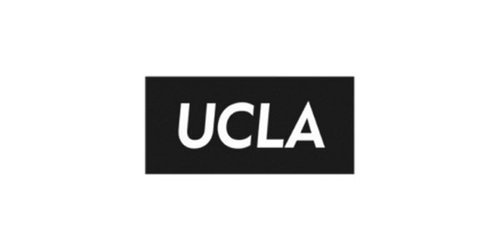
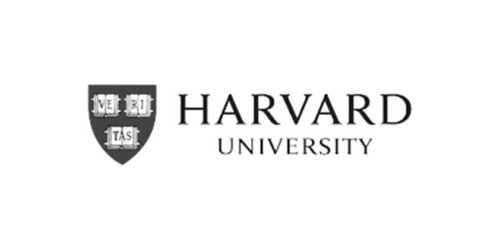
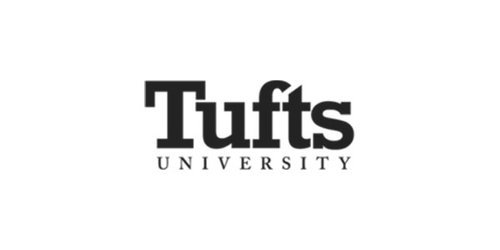
You already have a fundable R01 idea (even if you don’t think you do). All you need is to start defining yourself as a researcher and doubling down on the research you care about—instead of listening to everyone else’s advice.
And that’s uncomfortable as hell.
You have to think like a PI to be successful at the R01 level. Which is why we’re here to help you make the mental transformation from a mentee to an independent researcher—aka the gaping hole in your K Award training.
Becoming a PI happens before your R01 gets funded—not after.

IS THIS YOU?So you landed your K Award.
Now let’s lay the groundwork for you to write a successful R01.
You want to focus on your own research so that you’re not feeling pressured to work on other people’s priorities
You want to get out from your mentor’s wing—sure, they’re great (or maybe not 😬) but you’ll have the time to carve out your own thing so that you can work on the research you care about and avoid critiques from reviewers that you’re not independent enough
You want to be certain that you have R01-caliber research ideas and will feel confident about the scope, depth, and competitiveness of your research idea—especially as you gracefully distance yourself from your mentor’s work
You want to be around other women faculty on the K to R01 path that are dealing with similar challenges, so you’ll never have to figure things out on your own.
You want to never have to binge-write again. You’ll learn how to calmly manage your time so that you actually have space to write grants and papers during the week, instead of evenings and weekends
Getting funded takes a lot more than knowing the mechanics of how to write a strong R01.
Inside K To R Essentials you’ll build a strong and sustainable foundation to prepare for your research career and the action plan for a successfully funded R01… and all the grants that come after that.
I N T R O D U C I N GK to R Essentials
The 4-month curriculum-based faculty development program for women K Award recipients that will help you prepare and secure your first big R01 funding—and finally have the confidence to lead your own lab.
The program is for women K Award recipients ready to move from mentee to PI as they gear up to write their first R01 grant.
Here’s how we’ll help you:
You’ll get clear about where you’re headed in your research career— you’ll be intentional and strategic about which projects you work on
You’ll have confidence in your research ideas—so you don’t feel deflated and give up when someone tells you your idea isn’t fundable (which is BS, by the way)
You’ll know your priorities—which means you know which committee invitations you can decline, so you’re not just saying yes out of obligation
You’ll know what you’re doing when it comes to running a lab and leading a research team
You’ll have a clear timeline for your first R01 submission—so you can commit to a plan and ditch the binge-writing
You’ll trust your ability to make smart decisions—so you stop taking shitty advice from your mentors that doesn’t fit your goals
You’ll move differently in academia—aka more confidence and focus, less fear and stress
You’ll have a high-level conceptual outline of your first R01 and actually feel excited to write it—rather than being terrified.
How it works:
K to R Essentials curriculum
You’ll get video lessons to walk you through the K to R Essentials curriculum step-by-step, so you know exactly the timeline and action plan you need to write and submit your next-step R01. You’ll also get worksheets and assignments to help you implement what you learn and have a clear sense of where your program of research is headed.
You’ll learn tools to be more productive than you’ve ever been—but not at the expense of your sleep, your relationships, or your health
You can access all lessons and assignments through our online platform.
Supportive community
You’ll be surrounded by other women researchers who are working towards the same goal. Inside of this group, you’ll be able to help track one another’s progress, support each other through challenges and wins, and keep your drive high. Our students consistently mention the group aspect as a highlight of the program.
Small group coaching sessions
Every other week, you’re able to join a live coaching call where we will give you strategic guidance on preparing for your R01 and coach on what you’ve been learning in the K to R Essentials curriculum.
Transitioning from a Career Development to R01-level funding takes a lot more than knowing how to write a new type of grant.
Over your four months working through the K to R Essentials program, you’ll get curriculum, coaching, and community support to focus on moving from mentee to PI:
MONTH 1
DECLARE YOUR PRIORITIES
Your career, your vision, your program of research. We’ll teach you how to Claim Your Genius to define yourself as a researcher and find more time to write grants and papers by learning the Project Inventory system to help you prioritize and streamline your schedule. You’ll learn the Protect Your Time method to confidently assert yourself (yes, even with your mentors).
You’ll learn how to trust in yourself and your expertise and how to monitor your mind to finally start filtering all the feedback you receive through the lens of your vision for your career as an up-and-coming independent researcher (and—let’s be honest—a woman faculty member) so you can prepare to make this big career transition.
MONTH 2
DEFINE YOUR LEADERSHIP
We’ll walk you through tools to Identify your values and leadership style, you’ll get crystal clear on how to lead yourself, what kind of leader you want to be for others. We’ll teach you the Dream Team Matrix and the Dream Research Team Development framework to run your lab and your research collaborations confidently.
MONTH 3
BUILD YOUR SUCCESS STRATEGY
You’ll identify your next-step R01 idea that builds on the work you’ve been doing in your Career Development Award, you’ll develop a conceptual outline of your Specific Aims page, and you’ll identify your internal feedback team. We’ll teach you how to develop a strategy for positioning your R01 project as competitively as possible (including a pre-submission publication strategy). And you’ll learn the Success Strategy steps you need to take give yourself the best chance of getting your R01 funded.
MONTH 4
PREPARE YOUR WRITING TIMELINE
We’ll teach you how to create a realistic timeline to a funded R01, you’ll use our Proposal Development Plan to prepare a development project plan, fill your grant writing schedule, and you’ll get ready to write your first big R01! You’ll map out a timeline so you know exactly what you need to focus on, in what order, to put your best foot forward in your R01.
Why would you do a K to R01 program that doesn’t include any grant writing?
Because the goal is to build a strong and sustainable foundation for your research career as the first step to preparing for a successfully funded R01…and all the grants that come after that, too.
Becoming an independent researcher isn’t just about securing your first big R01 (if only, right?). The wild part is, you don’t become an independent researcher after you secure your R01—you must become an independent researcher in order to land that first big research grant.
A crucial part of the K to R transition (that nobody tells you!) is about changing your mindset from mentee to PI and setting yourself up for the next phase of your career. At this stage it’s crucial to think about your career as a whole, not just about the next grant.
Because this transition point is so anxiety-inducing, a lot of K Award recipients start panicking and behaving in ways that increase your chances of falling off the K cliff—like trying to squeeze this massive writing project into an already overwhelming schedule, or cobbling together small percent efforts on other PI’s grants because you’re scared you won’t be able to get your own big grant funded. You dig yourself into a hole that’s really hard to climb out of.
The key to a successful K to R transition is to play the long game: establish exactly where you’re going, identify what your goals and priorities are, and streamline your efforts so that you’re not stretching yourself too thin. Taking the time to slow down and set a strong foundation will allow you to accelerate—fast—when the time comes. Because now you have systems and habits and frameworks that allow you to prioritize your research, lead your team effectively, and write successful grants—repeatedly.
That’s what we focus on in K to R Essentials: laying the foundation. Once you have that foundation, then you’re ready to learn and implement the mechanics of writing a killer R01 grant.

About Your Instructor
I’m Sarah Dobson—a research grant consultant specializing in NIH R01 grants. My team and I have helped researchers bring in more than $60 million in NIH funding in the last few years. One thing I know for sure from all the consulting I’ve done on NIH grants is that getting funded takes a lot more than knowing the mechanics of how to write a strong R01.
I developed this K to R Essentials program after observing—over and over again—the specific struggles of women faculty at the transition point between their K Award and their first R01 grant submission. What I observed through the successes and setbacks of my clients is that the transformation from mentee to independent PI doesn’t happen after you secure your first R01. That transformation must happen in order to successfully secure that first R01.
That’s what this group program is designed to help you do. That transformation involves identifying your vision, establishing clear priorities, and developing sustainable writing habits…among other things. The best part is that you’ll do it alongside other ambitious women faculty who are at the same stage—so not only will you have support from me, you’ll have the support of your peers too. (And if you’re hesitant about group things, our alumni consistently mention how valuable the peer community was to them.)
The tuition for this 4-month professional development program is $5000 USD.
FAQs
-
Getting through the curriculum, participating in the calls, and completing the worksheets should probably take you about 3-4 hours each week.
But we recommend that you get in the habit of protecting at least 6 hours per week to both the program and to advancing your academic writing.
If that seems like a lot: you’re right! It is a lot.
That’s kind of the point. We want you to prioritize grant writing in a way that you very likely haven’t done before. And if you want to succeed at the R01 level, this is an absolute must.
If you can’t possibly imagine where you’re going to find those 6 hours? That’s actually what we tackle inside Month 1 of the program, so don’t worry too much if those 6 hours aren’t immediately available.
BUT: if the mere idea of setting boundaries, saying no to people, and gracefully exiting from existing commitments gives you hives and is something you won’t even consider - this is not the program for you.
The very first thing you do in the program is get more clear and courageous about how you spend your time. So yes, we’re going to ask you to do some brave and scary stuff. We’re here to coach you and cheer you on, but if you’re not open to taking some risks (and being supported to do so), this isn’t the place for you.
-
I know you’re working under circumstances that aren’t even close to ideal.
You’ve succeeded against all odds to be where you are, and you’re told (implicitly at best, overtly at worst) that you’re lucky to be here. On top of which, your university is supporting you less than ever while asking more of you than ever before.
That’s why it’s so important for you to look out for yourself.
Because let’s face it: Your research success doesn’t hinge on your ability to complete administrative work, attend a meeting, or be the best instructor your students have ever had.
Your ability to secure grant funding—repeatedly—is pretty much the only thing that will give you the career security you crave.
So let’s talk about “finding the time”. Or, as I teach inside the program, “finding your career compass”.
Really, there are just 3 steps to finding the time:
Identify the one big juicy scientific problem you’re interested in solving
Get clear on the gaps you need to fill that will help solve it
Say no to everything – work-related – that will take you away from that goal
I know, I know: Easier said than done, right?
But please believe me when I tell you that your overextension is not going to end until you get very clear on your priorities.
When you join me inside K to R Essentials we’ll actually dive deep into how to do this: it’s the very first activity inside Month 1 and it’s something we revisit in our semi-monthly group coaching calls.
Yes, it may take a few hours to consume the trainings & attend the calls, but suddenly, you’ll be getting so much more work done during your regular writing blocks, you might even have time to *gasp* take a break, have a nap, or read a book that isn’t related to your work.
-
One of the things I’ve observed as an academic career coach is that people will do truly wild things when they think they’re behind.
But being “behind” is just a story you’re telling yourself—and the actions you take in the name of being behind just reinforce that story. Namely: you panic, and you make things worse instead of better.
I’ve encouraged many of our students to bring their beliefs about being “behind” (in the program or in some other facet of their career) to one of our group coaching sessions so that they can get to the bottom of what’s really going on—and by getting coached on this they’re able to notice how their thoughts influence their actions…and then do something about it. Works every time!
One of the lessons we cover in Month 1 is about establishing priorities and making time for activities that matter to you and align with your goals. So some questions to ask yourself before you register for this program (or any other, for that matter) are, “how important is it to me to achieve the outcomes this program is promising?” and “how will I make the time to participate so that I’m able to achieve those outcomes?” and “if I say yes to this, what will I have to say no to?”
Also, if this is helpful for you, one of the ways that I personally combat feeling “behind” in a course or program is by reminding myself that I’ll get exactly what I need from any program I enroll in. I don’t need to be the very best student or complete every single assignment—I just focus on doing what I can, and I trust that I’ll get what I need.
And by the way, a lot of our students say that the very first lesson in Month 1 is the thing that they’ll carry with them throughout their career—so I’ve done my best to give you a career-altering lesson right off the bat, when you’re most motivated to engage with the curriculum.
And just to be clear, we keep the curriculum pretty lean so that there’s lots of time for implementation. Remember that the course is 4 months long, so you can always “catch up” if you find yourself “falling behind”.
Bottom line: eyes on your own paper. There is no behind.
-
First off: this is not a grant writing program. We’re not here to write a grant (yet). Sure, you’ll write an outline of your Specific Aims page, but you won’t learn the mechanics of writing a competitive R01 (that part comes later).
This is really a grantsmanship program—in the sense that it teaches you the core skills and strategies to become a successful, prolific independent researcher who can reliably and efficiently secure major research grant funding whenever you want to. And once you’ve wrapped your head around those skills, you’re ready to move on to the nuts-and-bolts of mastering a specific grant mechanism like the NIH R01. (Yes, I know that mindset and leadership aren’t generally considered grantsmanship skills, but please trust me when I tell you that they very much are. Ask me how I know.)
So: if you’re looking for an R01 grant writing program, K to R Essentials is not the program for you. If you’d rather skip the foundational stuff and dive right into writing an R01, there’s always our self-paced R01 grant writing course. Or whatever courses or seminars or free webinars you can get your hands on. Just do me one favor, ok? Pay attention to how stressed and overwhelmed you feel as you go it alone. If you decide you could use some support setting up some career success systems that will make the whole grant writing thing easier, we’re ready for you.
So if you see the value of setting yourself up for long-term grant (and career) success, you’re definitely in the right place.
I encourage you to see investing in a program like this as an investment in yourself, the sustainability of your career, and your ability to secure grant funding in a reliable, efficient way—you’re not just paying for a 4-month program, because what you learn will pay dividends for the rest of your research career.
-
Short answer: absolutely not.
Go ahead and submit your R01, recover from the suffer-fest, and then if you’re still interested in honing some foundational skills, come back and join us next time.
But if you’re not 100% committed to that plan, here’s my (slightly spicy) opinion on this:
Sprinting towards your very first R01 submission without adequate grant-writing skills and tools—much less the vision and sense of direction you need to be successful—is like being the pilot of a jumbo jet trying to take off on a very short runway.
In other words: you’re white-knuckling it and making it WAY harder than it needs to be.
And look: I understand. The K cliff is not all that far off, somebody (or many somebodies) told you that it’s time to get started, and you already know that it’s probably going to take more than one shot to get your R01 funded, so you might as well get the first one over with.
Sure, it’s probably a good experience to get the first one outta the way, get a taste of the process and all that. But if you’re grinding yourself into the ground to get this first one out the door?
You’ll end up closer to the K cliff instead of avoiding it—because you’re setting yourself on a dangerous cycle of write > burn out > recover > repeat that’s really hard to stop once you start. There’s an easier way that will help you achieve what you actually want, I promise.
My view of grant writing is very much based on Quality Over Quantity.
Because not only is a mediocre grant extremely unlikely to get you funded…
If you’re burned out from binge-writing? Your research, your health, and your relationships will suffer.
In contrast, when you have 4 whole months to build a strong foundation, plan and make sure you’ve got the pieces in place…
...when you join a group of other ambitious women faculty who are deliberately, meaningfully building the skills to become an independent researcher…
…when you create a reasonable timeline to submit your R01 and then prepare to learn how to write a strong R01 and get the feedback you need to actually be competitive…
It’s a whole lot easier to believe you’re actually working on The Grant that will get you your first major chunk of funding.
Maybe not the first time (we actually recommend that first-timers focus on getting high-quality feedback from peer review, which is what we teach you)—but I’ll bet it’ll take you far fewer kicks at the can to get your first R01 funded using our tried-and-true approach instead of sprinting towards your upcoming deadline and burning yourself out in the process.
In the end though? You’re the boss. Do what you think is best.
-
The tuition for this 4-month professional development program is $5000 USD. Just so you know, we’re firm believers that institutions should support their faculty’s professional development. That’s why we have resources available to support you to request tuition support from your institution. Get in touch at hello@sarahdobson.co and we’ll send you everything you need to make the request.



